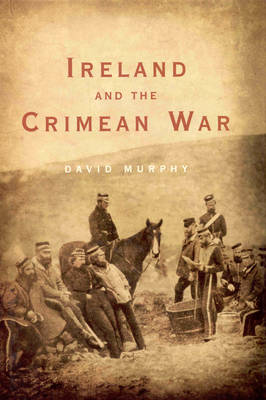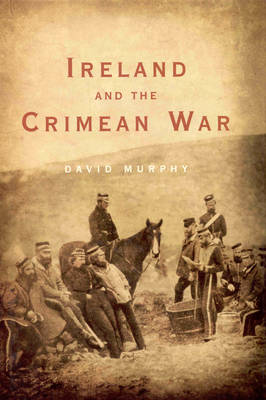
- Afhalen na 1 uur in een winkel met voorraad
- Gratis thuislevering in België vanaf € 30
- Ruim aanbod met 7 miljoen producten
- Afhalen na 1 uur in een winkel met voorraad
- Gratis thuislevering in België vanaf € 30
- Ruim aanbod met 7 miljoen producten
Zoeken
Omschrijving
In 1854, four of the major powers in Europe - Britain, France, Turkey, and Russia - became embroiled in a devastating and costly war. While hostilities began in Turkey's territories on the Danube, the war soon shifted to the Crimean peninsula, which was then part of the Russian Empire. The focus of the allied war effort became the strategically important naval port of Sevastopol in the Crimea. The Crimean war dragged on for two years and, as the generals and politicians bungled and dithered, the soldiers in the trenches at Sevastopol endured terrible conditions and died in droves in senseless attacks on the Russian fortifications. The Crimean war was, in many ways, the first 'modern' war and it foreshadowed later events in the trenches of World War I. First published in 2002 and now available in paperback, this is the first book to assess all levels of Irish involvement in the Crimean war. It tells the story of the Irish men and women who traveled to the Crimea to contribute to the war effort and their experiences are described using contemporary letters and published memoirs. In 2014, the world saw conflict break out in the Ukraine as Russia tried to reassert control over the strategically important Crimea region. Sevastopol has emerged once more as a key strategic interest for Russia and much of the recent activity has focused on securing this important naval base. While the nature of international conflicts may have changed, some key strategic issues mirror 19th-century concerns. The book addresses a previously unexamined aspect of the Crimean war of 1854-6; the Irish involvement in a costly international conflict that took place 160 years ago.
Specificaties
Betrokkenen
- Auteur(s):
- Uitgeverij:
Inhoud
- Aantal bladzijden:
- 304
- Taal:
- Engels
Eigenschappen
- Productcode (EAN):
- 9781846825590
- Verschijningsdatum:
- 31/10/2014
- Uitvoering:
- Paperback
- Formaat:
- Trade paperback (VS)
- Afmetingen:
- 155 mm x 231 mm
- Gewicht:
- 453 g

Alleen bij Standaard Boekhandel
+ 69 punten op je klantenkaart van Standaard Boekhandel
Beoordelingen
We publiceren alleen reviews die voldoen aan de voorwaarden voor reviews. Bekijk onze voorwaarden voor reviews.











